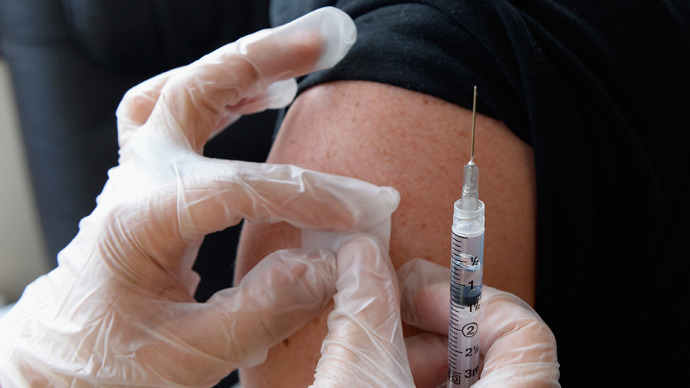Heroin vaccine could help users quit, eliminate overdose risk

Researchers have discovered a new vaccine that could help heroin users kick their addiction to the powerful drug, which is considered one of the most difficult to quit due to the likelihood of succumbing to withdrawl symptoms and relapse.
Scientists at the Scripps Research Institute in California tested the vaccine on rats and found that it is possible to neutralize heroin’s effect before the sensation reaches the brain. George Kobb, one of the vaccine’s developers, told US News and World Report that the vaccine could make it impossible for a user to overdose on the drug.
“We haven’t seen any rats relapse,” Kobb said. “We’re guessing it would be unbelievably expensive for someone to try to overdose on heroin with this vaccine. It’d probably take a dealer’s whole stash.”
The study provided a group of rats with “unlimited access to heroin” over a 28-day period, and then detoxified them over several weeks. That sample size was then divided into two groups, one of which was given the vaccine and the other was not.
Results from blood samples extracted from the rats revealed that
the heroin administered to vaccinated rats dissipated in their
bloodstream and had a much weaker effect.

The study was published Monday in Proceedings of the National Academy of Sciences.
“Basically we were able to stop them from going through that cycle of taking more and more heroin,” Joel Schlosburg, a Scripps postdoctoral research associate and an author of the study, told Discover magazine. “And that was with the vaccine alone; ideally for human patients the vaccine would be given with other treatments.”
The inoculation was also found to not block the effectiveness of methadone and buprenorphine, two standard heroin treatments already in use. The research team is seeking funding from the Food and Drug Administration to start human trials, which could begin by the end of this year.
One of the most addictive illegal drugs, heroin is such a difficult habit to shed because of how quickly it enters a user’s brain. Ingestion of the drug is quickly followed by a warming of the skin, dry mouth, and heaviness in the abdomen and extremities.
The drug’s high generally lasts between four and five hours, and someone attempting to quit will be met with certain difficulty. Studies of heroin addiction revealed that over half the number of users who tried to quit relapsed within three months and a majority relapsed with six months, according to Medicine Net.
The researchers hope this new vaccine will help addicts defeat the odds.
“The rats who were not vaccinated relapsed quickly, the vaccinated rats stopped taking it,” Kobb said. “In effect, what the vaccine does is prevent heroin from reaching the brain.”















